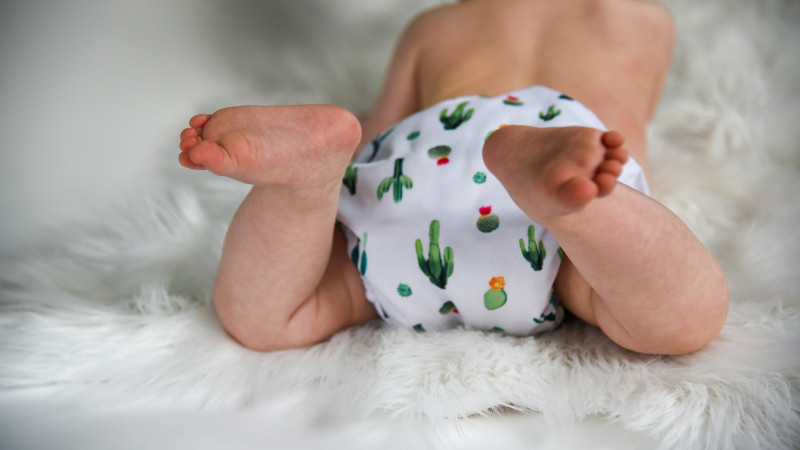Cloth Safe Diaper Creams

Rashes don’t seem to be as common with cloth diapers as they are with disposable diapers. But rashes do occur for some babies. Cloth diapers are more gentle on baby’s skin, but if rashes occur we do recommend using cloth diaper safe creams. Not all diaper creams are made the same and some are not safe to use with your cloth diapers.
Often a common diaper rash can be treated with some air out time, gentle clean and ointments. Yeast rash or other stubborn rashes might need a doctor's input. So if you are dealing with a stubborn rash, always consult your doctor or pediatrician.
What creams are cloth safe when cloth diapering and what should you keep in mind?
Most diaper creams can be divided into creams with petrolatum or not and with zinc oxide or not. Diaper creams containing Zinc oxide are generally deemed safe for cloth diapers. The Zinc can leave a white or grayish stain in the fabric, but it is usually just cosmetic and should not affect the absorbency in your diapers. The zinc stain comes out easier with natural fibers, but it might take a few washes. With synthetic fibers (like most pocket diapers) you might need to scrub the cream out with detergent or washing liquid, if you slather it on to thick.
Diaper creams with Petroleum jelly (also called petrolatum or Vaseline) on the other hand can inhibit absorption, and even cause repelling in the fabric. Making the diaper less absorbent and hence less efficient. We would not recommend using creams with those ingredients with diapers, especially diapers made from synthetic fibers, as they seem to be more affected. Synthetic fibers being suede cloth, microfleece, fleece, athletic wicking jersey (awj) or other similar man made fibers.
A few diaper creams have fish oil or cod liver oil as an ingredient. These creams are generally considered cloth safe, as they don’t affect absorbency, but the fishy smell can linger for a few washes.
Coconut oil can be an excellent first treatment for rashes, and it is cloth safe with all types of diapers. Coconut oil is considered affordable, available, antiseptic and moisturizing and most babies can tolerate it.
If you use natural fibers like cotton, bamboo and hemp you can generally use any creams that work for your family, even creams containing petroleum jelly. Natural fibers are more forgiving and wash easier than synthetic fibers. As long as you have a good wash routine using hot water and a good mainstream detergent, most creams come out easier, so you can use whatever diaper cream that works best for you and your baby. Keeping in mind that some might stain, but they shouldn’t inhibit absorbency.
Most cloth diaper manufacturers do recommend using a disposable or washable liner with diaper creams to protect the diapers. So if you are dealing with a rash and slathering on some layers of ointment, using a liner might be a good practice.
If a rash is recurring or stubborn and doesn’t clear up within a couple of days, it might be good to see if it might be caused by the detergent used, detergent build up or even yeast. If you suspect that your child has a yeast rash, consult your doctor as your child might need to use an antifungal cream. Creams that treat yeast are generally considered safe to use with cloth diapers. The diapers might need a special bleach wash or sanitizing while the yeast clears up, so some caregivers revert to disposable diapers while treating the rash.
I am not a doctor or a qualified physician, so please refer to your family doctor or pediatrician if you are concerned about your baby’s health.
These are a few cloth safe diaper creams we love and recommend. Whether you like creams with zinc or not, there is something for everyone. These are handpicked, from a group of well rated diaper creams our readers like.





